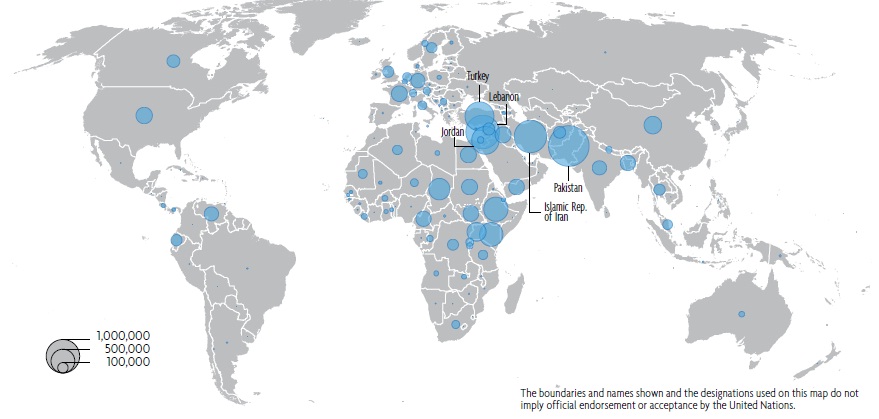Resettlement of refugees: crucial solution to a humanitarian challenge
Migration 12 January 2015Resettlement is one of the most important international protection tools currently used to provide durable solutions for refugees, who have looked for protection in regions where their fundamental rights are (still) at risk. In practice, it consists in transferring a refugees from the State where he sought asylum to another State, which has previously agreed to grant to him or her access to the territory and a legal status, enabling him to stay and to see his rights recognised and respected.
This tool is therefore one amongst the legal avenues that refugees could use to safely reach the European Union and other offering countries. Through resettlement, refugees can leave a situation of uncertainty and avoid hazardous journeys, which are not only dangerous, but also very expensive, resulting in profit for criminal organisations all along the major migratory roots. Resettlement is also a way to demonstrate solidarity and responsibility sharing with the countries that are hosting large number of refugees but, often, do not have strong economies and means to provide for them.
The humanitarian challenge that, at the moment, requires more attention is the case of Syrian refugees. Syria’s neighbouring countries, in particular Lebanon, Turkey, Jordan, Iraq and Egypt, are currently hosting more than 3.2 million of refugees. UNHCR estimates that more that 10% are acutely vulnerable individuals, therefore children, single mothers, victims of tortures, people with serious medical conditions, and more.
Resettlement is discussed periodically at ministerial level in Geneva, where governments pledge to increase the number of Syrian refugees they are accepting through resettlement and other humanitarian mechanisms. Despite Germany being one of the countries that receives more asylum applications, the 9th of December it raised its pledges to 30.000 places, of which 1500 for individual sponsorship. Other European States pledged for 4000 additional places in total, mainly Sweden, France, the Netherlands and Belgium. European and non European pledges bring the current international commitment to 67.638 places, which represent only the 2% of the total number of Syrian refugees, mentioned above.
The High Commissioner for Refugees, Antonio Guterres, maintains a cautious but optimistic approach. After having met the target of 30.000 places for 2014, he now called for 130.000 places to be made available. This number is still tiny compared to 3.2 million, but the actual increase of pledges is a step in the right direction. It is important that governments understand that an increased commitment to resettle refugees will have a twofold positive result: in the short term, will provide protection and durable solution to people in particularly vulnerable situations; in the long term, would diminish the number of precarious boats trying to cross the Mediterranean and would weaken the power of criminal organisation that take advantage of the despair of other human beings.








